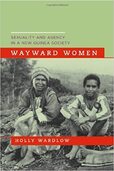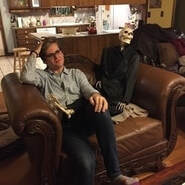Sacred Chickens
Menu
SACRED CHICKENS
 Wayward Women Author, Holly Wardlow by Jarad Johnson This is a book that I read for my Anthropology class this semester (when we were still in actual classrooms!) and one that I thoroughly enjoyed. I don’t know about you but learning about different cultures has always fascinated me. It not only reveals how different from each other, but also the base humanity that we all share. The book is an ethnographic study of the Huli culture in Papua, New Guinea, focusing on the treatment of women there. Let me start off by saying, it’s not good, folks. The state of women’s rights there seems shocking, but it’s a necessary read. While it may not seem applicable to life in the West, I’m not sure that we shouldn’t consider the end result of openly ascribing property and not individual value to women or any other group of humans. Is this a worst-case scenario? Yes. But there’s value in considering where we end up if we openly deny others their full humanity. Women are viewed very differently in the Huli culture. A woman is not viewed as an individual person, but rather as part of a family unit, and more importantly, as the source of bride wealth, which is the main motivation behind marriage. Bride wealth usually consists of two things; a woman’s virginity (and ability to bear children) and the amount of pigs that her husband pays for her. The number of pigs differs depending on what the husband’s family can pay. Consequently, marriages are often arranged there. No happily ever after, no fairy tale weddings. (Of course, the successful romantic marriage is less prevalent in our own culture than we might like to think…but that’s a topic for another time.) There is a connection often made between women and pigs also, and in fact it seems, at least to the ethnographer, that women are often seen as sub-human, or less than human, somewhere between human and pig. The Huli also value male beauty, and the culture teaches that women are dirty and ugly, and responsible for most of the world’s ills. Their creation myth teaches that humans age and die because the god’s wife refused him something, and he punished her children to age and die because of that refusal. Even the mythology sets women up right from the start. (This is also not unusual in Western culture.) And yet, society there is dependent on women to keep things running. Women are expected to do everything, from working, tending the farm, to taking care of the husband (in class, when we were discussing this, my response was, “what are men for, exactly?”). Women do everything, in other words. From this description, you may imagine Huli women as quiet, servile people, but that would be wrong. They are actually the ones who fight and shout profanity in the streets. Huli marriages, at the least the ones I read about, are not happy ones, with couples fighting and screaming at each other on a regular basis. Of course, men have used this as a justification of their prejudices of women as beasts. You must understand that women in this culture have no rights and no personhood. They are not individuals. They have nothing they can claim as their own, and their social structures don’t permit them any recourse. So, they take matters into their own hands, in what little ways they can. The first is taking their own lives. In our culture, suicide is seen differently than it is among the Huli. We see as taking our own life and as sin (depending on your religious views) but that is not the case here. A woman takes her own life because she is damaging her bride wealth. She is basically taking away her husband’s profit, because he’s already paid for her with however many pigs, and when she kills herself, she often leaves him impoverished and it means he has to do twice the work, and subsequently can’t make as much money. It’s a very different motivation. One of the other recourses is, during the heat of an argument, cutting off part of a finger and throwing it at the person you’re angry with to, “finish your anger,” as the text says. If the person you’re angry at is your husband, cutting off part of a finger means he has to pick up some of the chores that the woman can’t do. The final option is becoming what is called a, “passenger woman,” which is what they call a prostitute. Not only is it seen as damaging to the woman’s bride wealth, it also allows women to make their own money. Not that this is a particularly good option either, because many of the men refuse to use condoms, and many passenger women refuse to use them because they fear that men will somehow leave them inside of them after they have sex, causing infection and death. Of course, there is stigma around passenger women, and they are often attacked and raped. And not all passenger women want to be there. Some are just waiting to resolve conflicts with their husbands. Some, however, seem to enjoy the power and relative independence it gives them. This book is clearly and lucidly written. It is an interesting consideration of how another culture works and works simply on that level. Of course, it forces the reader to not only consider the culture being studied in the book, but also the effects that erasing the humanity of any one group can have on a culture at large anywhere in the world. It also brought up a question for me about cultural relativism. Cultural relativism is the idea that a person beliefs, values and practices should be understood on the basis of that person’s culture, rather than judged against the criteria of another. Generally, I think this is a good practice to employ to avoid cultural biases; however, do we excuse behavior that obviously is harmful to people, on the basis of cultural relativism? Is there a limit to cultural sensitivity when it comes to human rights? I think it’s up to the individual reader, but I certainly enjoy the discussion that question prompts.  Bio: Jarad is the co-administrator and writer for Sacred Chickens, attends college at MTSU, loves tea and coffee, and tries to spend every spare second reading. He recently developed an interest (some might say obsession) with gardening. Jarad is an English major with a concentration in literature. Bless his heart! Let's all light a candle for him and send him happy thoughts!
0 Comments
Leave a Reply. |

Click Photo above to buy ebook or paperback from Amazon.
Here's the link to Barnes and Noble Or order through your favorite independent bookstore! Categories
All
|
 RSS Feed
RSS Feed